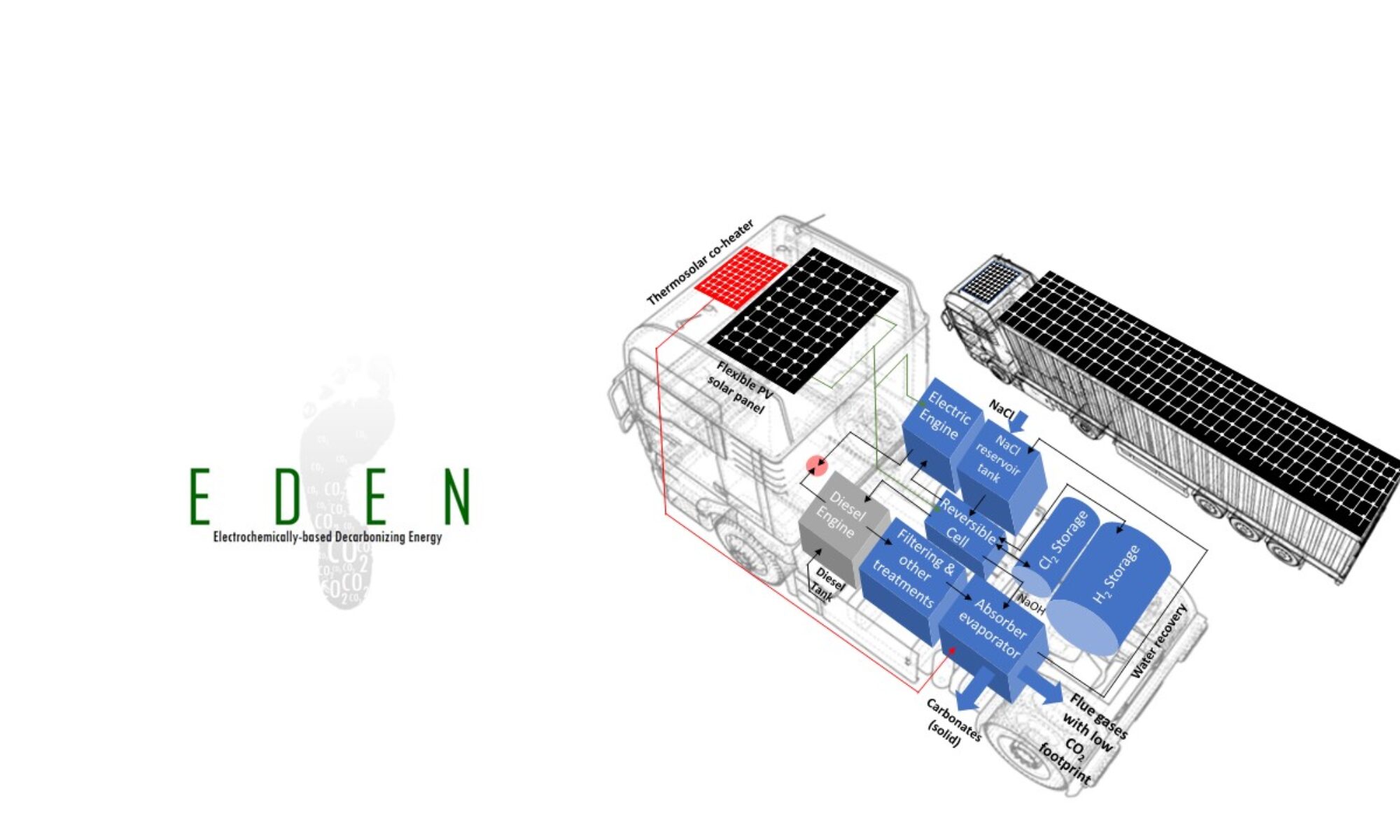SetEDEN2Diesel is an innovative proposal of hybrid engine based on the results of the previous project EDEN (Electrochemically based Decarbonising Energy) funded by the AEI throughout the 2017 EXPLORA Call. In EDEN, an innovative energy accumulation system was developed at technology readiness level (TRL) TRL3 for application in wastewater treatment plants and SetEDEN2Diesel proposes that it can also work with combustion engines and can contribute significantly to the targets of ecologic transition especially to climatic change mitigation, pollution control and circular economy. Thus, the SetEDEN2Diesel’s main objective is to develop an electrochemical technology at TRL5, that allows the intelligent and sustainable regulation of solar energy in the road transport sector, reducing the carbon footprint of this sector, making it more environmentally sustainable and contributing to improving the transition to electric and hybrid engines,
enhancing their differentiation and therefore their competitiveness. The main concept is the use of solar photovoltaic energy to power an electric engine, storing surplus energy in the form of hydrogen and chlorine obtained by electrolysis of salty solutions. The electrochemical process is reverted to provide electricity when the solar power is not high enough, powering the electric engine of the truck by operating in fuel cell mode. Currently, flexible solar panels allow to place them easily along the surface of the trucks and their trailers, being capable to receive irradiation throughout the whole day. This system also produces a highly concentrated solution of sodium hydroxide that will be used to reduce carbon emissions when lack of electricity obliges to use the diesel engine. SetEDEN2Diesel considers process integration & modelling to better understand the mechanisms involved and applies this knowledge to scale up to the TRL needed to start thinking of industrial transfer. To reach this ambitious objective, three specific objectives have been defined which define the different Work Packages (WP): O1) Adaptation of EDEN® to sustainable energy regulation in the road transport sector (faced in WP3), which aims to adapt and optimize the different elements of the EDEN® technology to the special characteristics of trucks; O2) Process engineering and scale-up (faced in WP4), which aims to gain a thorough understanding of the processes involved in all experimentally evaluated technologies through process integration& modelling (WP5). Thus, a proof of concept at
TRL 5 with a small model truck will be constructed; O3) Assessment and optimisation of sustainability (faced in WP5), in which the technology will undergo life cycle assessment tools to provide relevant parameters not only related to environmental impact but also to the use of raw materials, toxicity, economic and social impacts. Coordination of the project and transfer of results to Society are considered with two especially suited WP1 & WP2. The research team is consolidated and highly experienced in the development of energy and environmental applications of electrochemical technology. To face our weakneses in the vehicle sector, the team is completed with the contribution of a highly specialized Supporting Research Team consisting of 2 professors from a vocational skill center speciallized in automotive technology for WP4 and 2 international professors in WP3&5, highlighting the importance of international collaborations in our research project.

